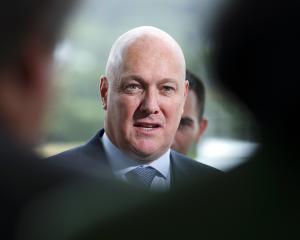Fighting the fear and stigmatisation surrounding Ebola is one of the greatest challenges health workers face as they struggle to contain an unprecedented epidemic which has killed nearly 700 people.
The latest outbreak has been found in four countries since it was first detected in March and workers and officials, blamed by panicking populations for spreading the virus, have been threatened with knives, stones and machetes, their vehicles sometimes surrounded by hostile mobs.
Authorities are now saying a top Sierra Leone doctor treating Ebola victims in the country has died from the disease, which has no vaccine, no specific treatment and a fatality rate of at least 60%.
Ebola was first discovered in the Democratic Republic of Congo in 1976.
Since then it has affected countries further east, including Uganda and Sudan.
This outbreak is unusual because it started in Guinea, which has never before been affected, and is spreading to urban areas.
Also unusual this time is health professionals being blamed for carrying the disease.
Log barriers across narrow dirt roads block medical teams from reaching villages where the virus is suspected.
Sick and dead in villages, cut off from help, are infecting others.
Doctors Without Borders, the main group fighting the disease, says it is not stopping the epidemic.
People appear to have more confidence in witch doctors.
Disturbingly, health officials say the epidemic is out of control, moving back and forth across the porous borders of Guinea and neighbouring Sierra Leone and Liberia, infiltrating open-air markets, overwhelming weak health facilities and decimating villages.
In one of Guinea's remote rural areas, 80% of those infected have died and Guinea has recorded more than twice as many deaths as other countries.
The latest concern comes after a 40-year-old American man of Liberian descent, who worked for the West African nation's Finance Ministry, died in Nigeria after taking several flights on Asky Airlines.
At the time, Liberian authorities said they had not been requiring health checks of departing passengers from Liberia's capital.
Asky has suspended flights to and from Sierra Leone and Liberia and concern over the spread of the virus has increased since the first death was reported last week in Nigeria's coastal city of Lagos, home to 21 million people.
Togo-based Asky said it would no longer take on food in Guinea, where the outbreak was first identified.
It said passengers leaving the Guinean capital, Conakry, would be checked for signs of the disease before departure.
The airline said medical teams would be deployed to screen passengers in transit through its Lome hub.
The Lagos victim was a Liberian who travelled to Nigeria on Asky via Lome.
Nigeria's largest carrier, Arik Air, has also suspended flights to Liberia and Sierra Leone because of the Ebola risk.
With about 70 people now being screened because of the government official's death, concern is growing the spread of the disease is now only one flight away from Europe and the United States.
The UK and Europe, Australia and Asia are on border alert.
The disease has infected infected two US humanitarian workers in Liberia and a man was tested at a hospital in Birmingham after arriving back in the UK from Nigeria via Paris but given the all-clear.
The World Health Organisation says the risk of travellers contracting Ebola is considered low because it requires direct contact with bodily fluids or secretions such as urine, blood, sweat or saliva.
Ebola cannot be spread like flu through casual contact or breathing the same air.
But the early symptoms of Ebola - fever, aches and sore throat - mirror many other diseases, including malaria and typhoid.
Only during the latter stages of Ebola do patients sometimes experience severe internal bleeding and blood coming out of their mouth, eyes or ears.
With health officials being blocked from treating the sick, witchcraft being relied upon for help by African villagers and the epidemic spreading quickly, it seems the closing of borders - now under way - is the only hope for containment.
Even doctors, who cannot control the epidemic, say they are praying for help.












